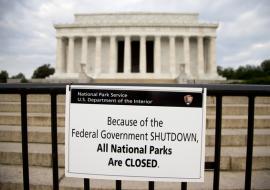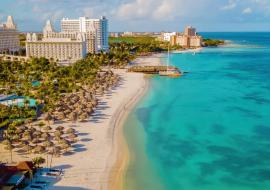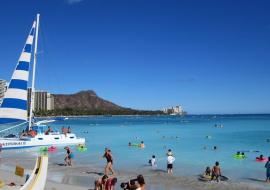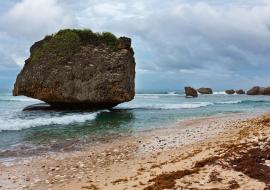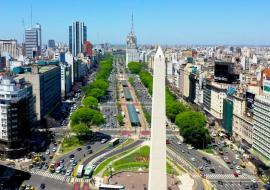Cuba Travel Remains Thorny Despite Diplomatic Ties
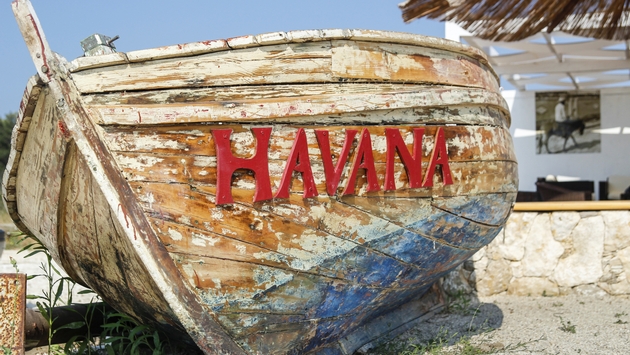
Even though the United States and Cuba are reopening their embassies, regular scheduled airline flights between the countries will take a bit longer.
The Obama administration eased restrictions a bit in January for educational and religious trips by charter flight. But tourist trips remain prohibited to the country 90 miles from Florida.
Several bills in Congress would eliminate 50-year travel restrictions imposed after Cuba's communist revolution.
But a House vote last month reinforced opposition in the Republican-controlled Congress to ease the trade embargo or allow unfettered flights.
The House voted 247-176 on June 4 to keep a Cuba-related provision in a transportation funding bill that would block the administration's rules easing travel. The White House has threatened to veto the bill, which must still be reconciled with the Senate.
"It is an utter disgrace that the administration has removed human rights and America's security from the president's foreign policy agenda," said Rep. Mario Diaz-Balart, R-Fla., who heads the subcommittee that produced the legislation.
Since January, the U.S. Treasury Department's Office of Foreign Assets Control no longer requires special licenses to visit Cuba. Travelers only have to certify they are visiting in one of 12 categories — educational, religious and humanitarian projects, among others — while tourism remains prohibited.
"There are Americans who want to travel to Cuba and American businesses who want to invest in Cuba," Obama said Wednesday in announcing plans to reopen embassies later this month. "I've called on Congress to take steps to lift the embargo that prevents Americans from traveling or doing business in Cuba."
The number of travelers at stake is significant. An estimated 500,000 already travel from the USA to Cuba each year, according to a Congressional Research Service report based on Cuban statistics.
Included in that number are 350,000 to 400,000 Cuban Americans, whom Cuba considers its own nationals, who visit the island each year, and 92,348 people who traveled in 2013 under U.S. licenses for reasons such as education or religion, according to the report.
Two in three Americans (67%) support ending the trade embargo, according to a poll released Wednesday by the Chicago Council on Global Affairs. The national poll of 2,034 adults conducted May 25 to June 17 by GfK Custom Research had a margin of error of 2.2 percentage points.
But at least three bills have been introduced – and haven't made much progress – in the House and the Senate to prohibit regulating travel to Cuba.
One of the sponsors, Rep. Charles Rangel, D-N.Y., said Wednesday that he's been working more than 20 years to enable Americans to visit Cuba more easily.
"It is now up to the U.S. Congress to lift the embargo with Cuba and legalize the exchange of our goods, culture and services," he said.
Source: USA Today








